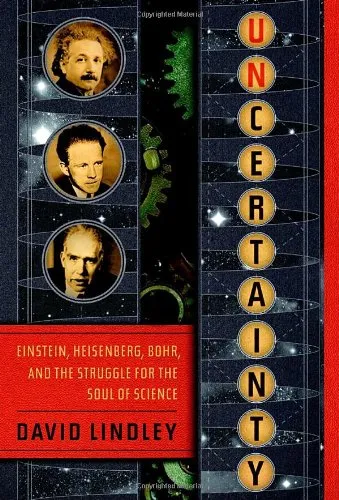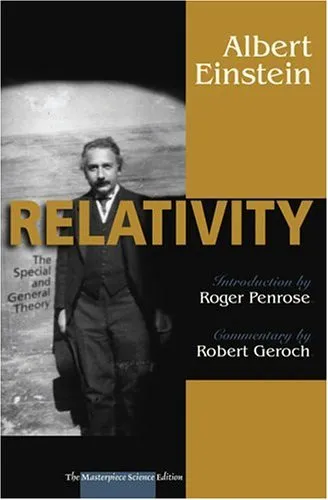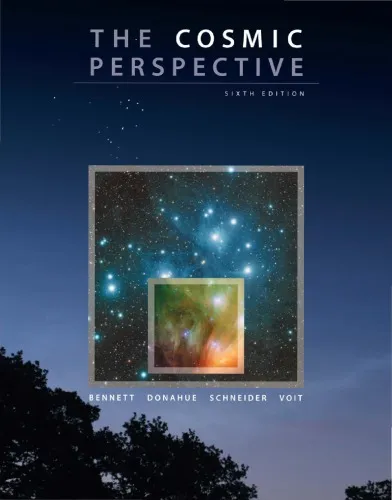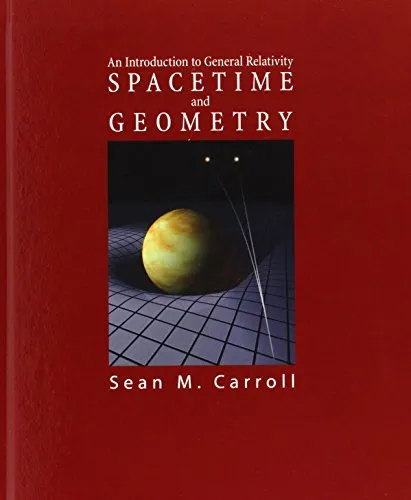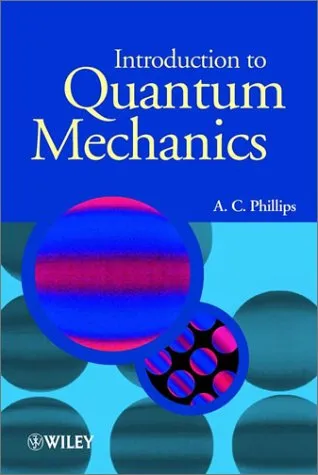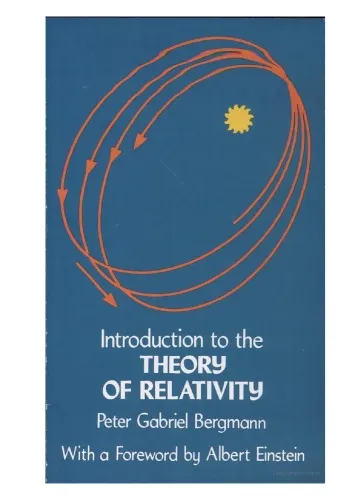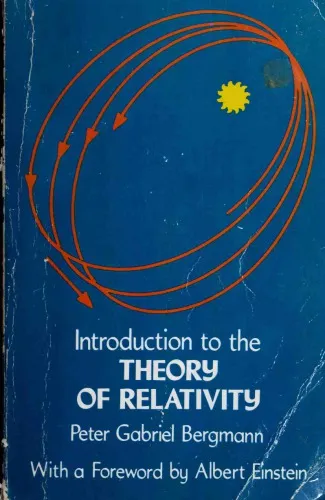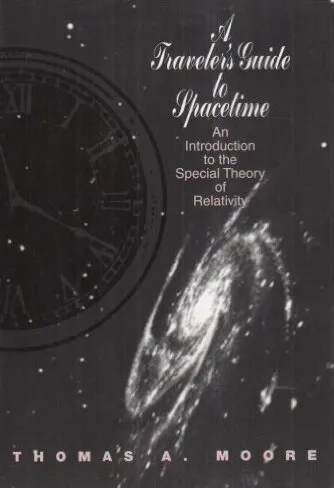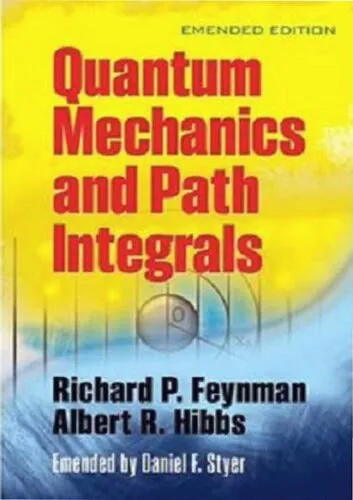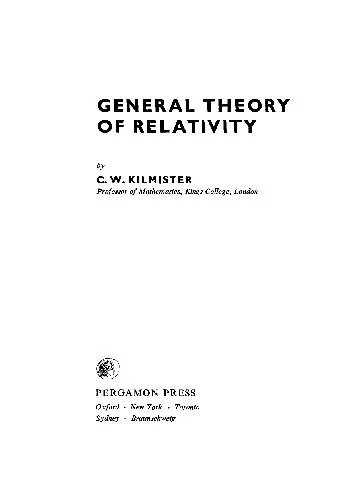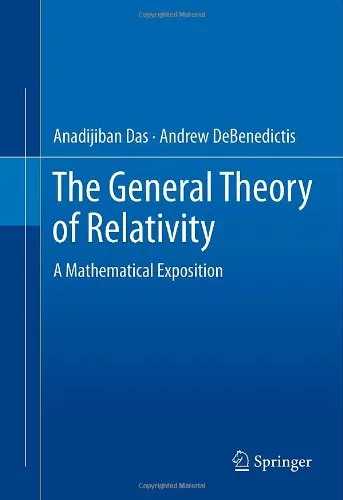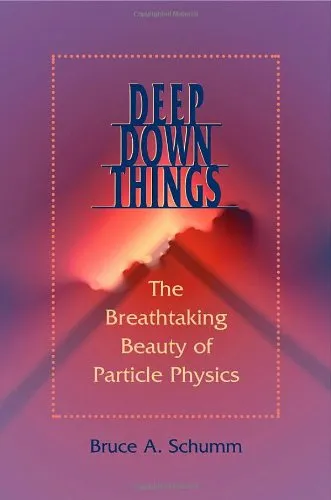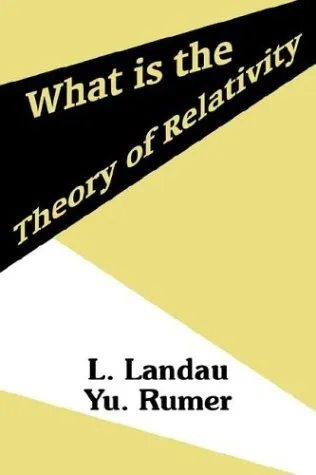Uncertainty: Einstein, Heisenberg, Bohr, and the Struggle for the Soul of Science
4.2
بر اساس نظر کاربران

شما میتونید سوالاتتون در باره کتاب رو از هوش مصنوعیش بعد از ورود بپرسید
هر دانلود یا پرسش از هوش مصنوعی 2 امتیاز لازم دارد، برای بدست آوردن امتیاز رایگان، به صفحه ی راهنمای امتیازات سر بزنید و یک سری کار ارزشمند انجام بدینکتاب های مرتبط:
دربارهٔ کتاب "Uncertainty: Einstein, Heisenberg, Bohr, and the Struggle for the Soul of Science"
کتاب "Uncertainty" به قلم دیوید لیندلی، سفری پرچالش به قلب یکی از مهمترین تحولات علمی قرن بیستم است. این کتاب به بررسی مسائل و جدالهای پیچیدهای میپردازد که به واسطه نظریههای انقلابی فیزیکدانانی همچون آلبرت انیشتین، ورنر هایزنبرگ و نیلز بور مطرح گشته است. بحث درباره اصل Uncertainty و پیامدهای آن بر علم و فلسفه، چالشی بود که نه تنها علم را مجدداً تعریف کرد، بلکه ماهیت واقعیت را نیز زیر سوال برد.
خلاصهای جامع از کتاب
کتاب "Uncertainty" داستانی است که با شک و تردید آغاز میشود. ورنر هایزنبرگ، نابغه جوان آلمانی، در سال ۱۹۲۷ با معرفی اصل عدم قطعیت (Uncertainty Principle)، تغییرات اساسی در فیزیک کوانتوم ایجاد کرد. این اصل که میگوید نمیتوان جایگاه و سرعت یک ذره را به طور همزمان با دقت کامل اندازهگیری کرد، در ظاهر ساده به نظر میرسد اما پیامدهای عمیقی در فلسفه علم داشت.
این نظریه، آلبرت انیشتین، پدر نظریه نسبیت را بر آن داشت که با جمله معروف خود، "خدا تاس نمیاندازد"، این اصل را به چالش بکشد. او باور داشت که قوانین طبیعت باید مطلق و قطعی باشند، نه مبتنی بر احتمالات. از سوی دیگر، نیلز بور در دفاع از فیزیک کوانتوم، استدلال کرد که این اصل نشاندهنده طبیعت واقعی جهان است.
این کتاب با نثر جذاب و روایتی گیرا، وقایع علمی، روابط شخصی و درگیریهای فلسفی این دانشمندان را به تصویر میکشد و به ما نشان میدهد که چگونه اختلافات آنها بازتاب دهنده درگیریهای بنیادیتر درباره ماهیت علم و واقعیت است.
نکات کلیدی کتاب
- تاریخچه و توضیحات جامع درباره اصل Uncertainty و فلسفه کوانتوم
- بررسی دیدگاههای مخالف آلبرت انیشتین و نیلز بور درباره اصول احتمالاتی فیزیک
- نقش ورنر هایزنبرگ در پایهگذاری یکی از انقلابیترین نظریههای علمی قرن
- چگونگی تأثیر فهم علمی بر دیدگاه ما نسبت به واقعیت
- روایتی از روابط شخصی، علمی و رقابتهای حرفهای دانشمندان بزرگ فیزیک
جملات معروف از کتاب
"خدا تاس نمیاندازد." - آلبرت انیشتین
"نه تنها شما 'God’s dice' را با احتیاط نمیاندازید، بلکه گاهی اوقات به سختی میتوانید بگویید که آنها کجا فرود میآیند." - نیلز بور
چرا این کتاب مهم است
کتاب "Uncertainty" برای هر کسی که به علم، فلسفه و تاریخ علاقه دارد، یک اثر ضروری است. دیوید لیندلی به شکلی استادانه بحثهای پیچیده علمی را به زبان ساده و روان بیان کرده و جذابیتهای انسانی و روایتهای شخصی پشت آن را آشکار میکند.
این کتاب ما را به اندیشیدن درباره برخی از بزرگترین پرسشها در مورد حقیقت، علم و جایگاه ما در جهان وامیدارد. اهمیت آن تنها در ارائه چشماندازی به تاریخ علم نیست، بلکه در روشنسازی این واقعیت است که علم همواره در حال تغییر و تکامل است و در عین حال بازتابی از انسانیت، تعارضات و تخیلات ماست.
Introduction to "Uncertainty: Einstein, Heisenberg, Bohr, and the Struggle for the Soul of Science"
"Uncertainty: Einstein, Heisenberg, Bohr, and the Struggle for the Soul of Science" is an intellectual and historical exploration of one of the most impactful scientific debates of the 20th century. The book dives into the clash of ideas between some of history's greatest scientists, as they grappled with fundamental questions about the nature of reality, the behavior of particles, and the limitations of human knowledge. Richly detailed and accessible, this book offers readers a window into the philosophical and scientific paradigm shifts that shaped modern physics.
At its core, "Uncertainty" is not just about physics but about the human story of discovery, disagreement, and the search for truth. It examines the delicate interplay of intellect and ego, highlighting the profound impact of key figures such as Albert Einstein, Werner Heisenberg, and Niels Bohr. Their debates were not only about equations and experiments but also about the meaning of science itself and its role in understanding the universe.
The book provides historical and intellectual context for the development of quantum mechanics and examines its broader implications. By focusing on uncertainty as a principle – both in physics and in life – this work encapsulates a struggle that goes beyond the confines of science to ask questions about how we pursue knowledge and accept what we may never truly understand.
Detailed Summary of the Book
"Uncertainty" unfolds as a gripping narrative centered around the development of quantum mechanics during the early 20th century.
The central theme of the book is the concept of uncertainty, famously encapsulated by Werner Heisenberg’s uncertainty principle, which challenged the deterministic view of science that had dominated since Newton. The story begins with the rise of quantum physics and the conflicts it sparked among the scientific giants of the period. Drawing from rich biographies and historical accounts, the book describes how Albert Einstein fought to preserve a deterministic perspective of the universe, famously insisting that "God does not play dice with the universe." In contrast, Niels Bohr, championing quantum mechanics, argued that uncertainty and probability are inherent to nature itself.
Another key figure in this intellectual drama is Werner Heisenberg, who introduced the uncertainty principle, which posits that certain pairs of physical properties (like position and momentum) cannot be simultaneously measured with perfect precision. This principle became a cornerstone of quantum mechanics and was staunchly defended by Bohr and others. The book traces the heated debates between these figures, particularly the Bohr-Einstein debates, at Solvay conferences and beyond. These discussions were not merely technical but had deep philosophical implications about the nature of reality and the limits of human understanding.
Through elegant prose, "Uncertainty" explains these abstruse concepts in a way that is accessible to lay readers without oversimplification. It paints a vivid picture of the cultural, scientific, and personal contexts in which these debates occurred, shedding light on the personalities and emotions that influenced the direction of science.
Key Takeaways
- The uncertainty principle represents a fundamental property of the quantum world that challenges deterministic notions of reality.
- The debates between Einstein, Heisenberg, and Bohr highlight the deep philosophical rifts that scientific progress can create.
- Science is not just about equations and experiments; it is shaped by human ambition, intuition, and dialogue.
- Quantum mechanics revolutionized our understanding of the universe and the limits of human knowledge.
Famous Quotes from the Book
Throughout "Uncertainty," several thought-provoking quotes capture the philosophical depths of science:
"To truly understand quantum mechanics, one must embrace the idea that uncertainty is not a limitation of our thinking but a reality in and of itself."
"Einstein’s resistance to quantum mechanics was not a rejection of science but an affirmation of his belief in its ultimate coherence."
"By embracing uncertainty, Bohr and Heisenberg did more than challenge Einstein’s ideals – they redefined the nature of knowledge."
Why This Book Matters
"Uncertainty: Einstein, Heisenberg, Bohr, and the Struggle for the Soul of Science" offers readers far more than an understanding of quantum mechanics. It bridges the gap between science and philosophy, inviting readers to reflect on the human quest for knowledge and the inherent limitations of that pursuit. By examining the personal struggles and insights of three of the 20th century’s most brilliant minds, the book transcends the boundaries of physics to speak to anyone curious about the nature of truth and the intellectual challenges of their time.
The book also serves as a reminder of the human element in scientific discovery. The personalities, egos, and philosophical convictions of the scientists involved shaped the discourse as much as their equations and experiments. This interplay of human emotions and intellectual rigor makes the story uniquely compelling.
Above all, "Uncertainty" is an invitation to marvel at the mysteries of the universe and embrace the idea that not everything can – or should – be neatly resolved. By reflecting on our limitations, we gain a more profound appreciation for the infinite possibilities of discovery.
دانلود رایگان مستقیم
شما میتونید سوالاتتون در باره کتاب رو از هوش مصنوعیش بعد از ورود بپرسید
دسترسی به کتابها از طریق پلتفرمهای قانونی و کتابخانههای عمومی نه تنها از حقوق نویسندگان و ناشران حمایت میکند، بلکه به پایداری فرهنگ کتابخوانی نیز کمک میرساند. پیش از دانلود، لحظهای به بررسی این گزینهها فکر کنید.
این کتاب رو در پلتفرم های دیگه ببینید
WorldCat به شما کمک میکنه تا کتاب ها رو در کتابخانه های سراسر دنیا پیدا کنید
امتیازها، نظرات تخصصی و صحبت ها درباره کتاب را در Goodreads ببینید
کتابهای کمیاب یا دست دوم را در AbeBooks پیدا کنید و بخرید
1551
بازدید4.2
امتیاز0
نظر98%
رضایتنظرات:
4.2
بر اساس 0 نظر کاربران
Questions & Answers
Ask questions about this book or help others by answering
No questions yet. Be the first to ask!
